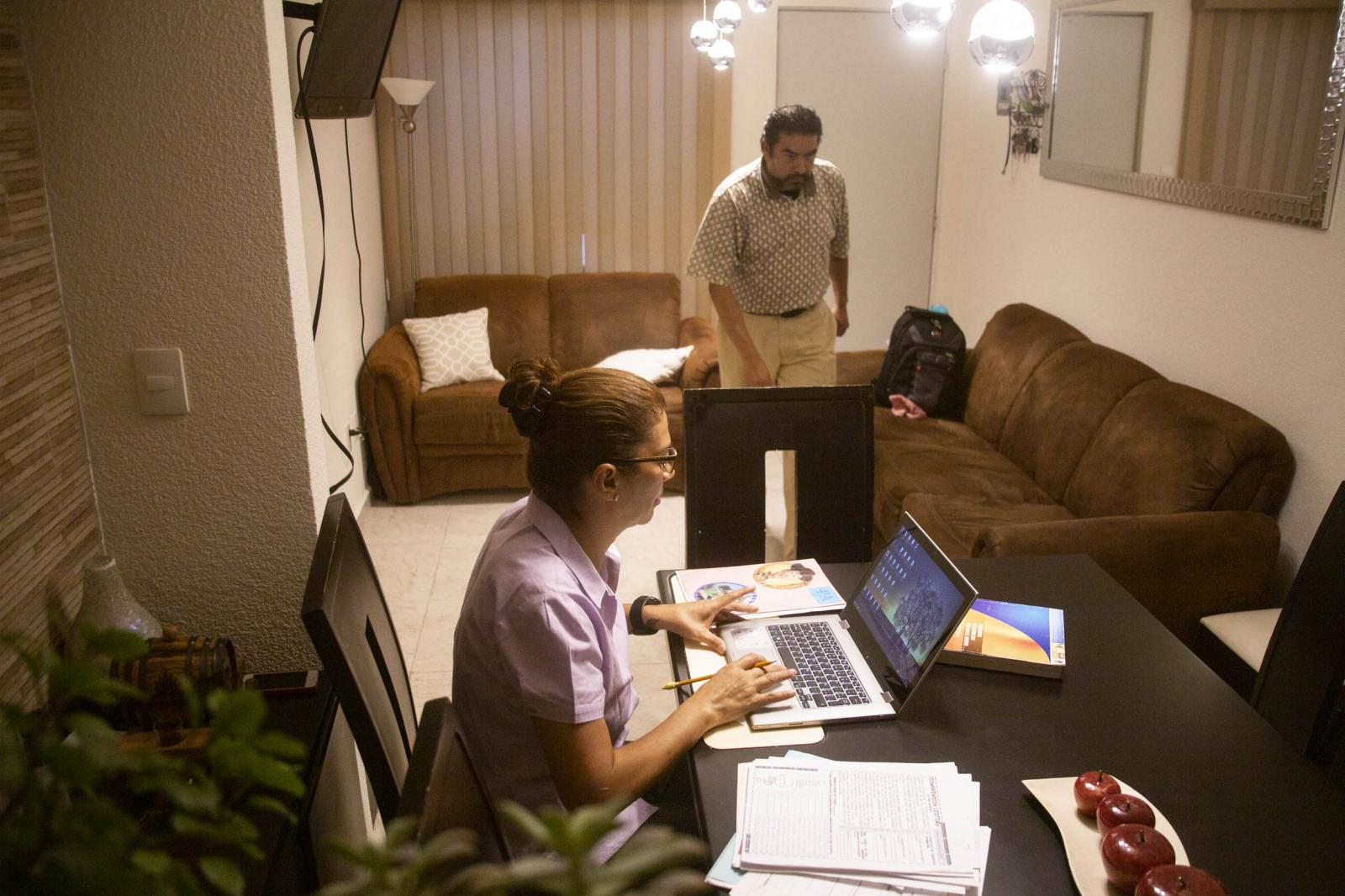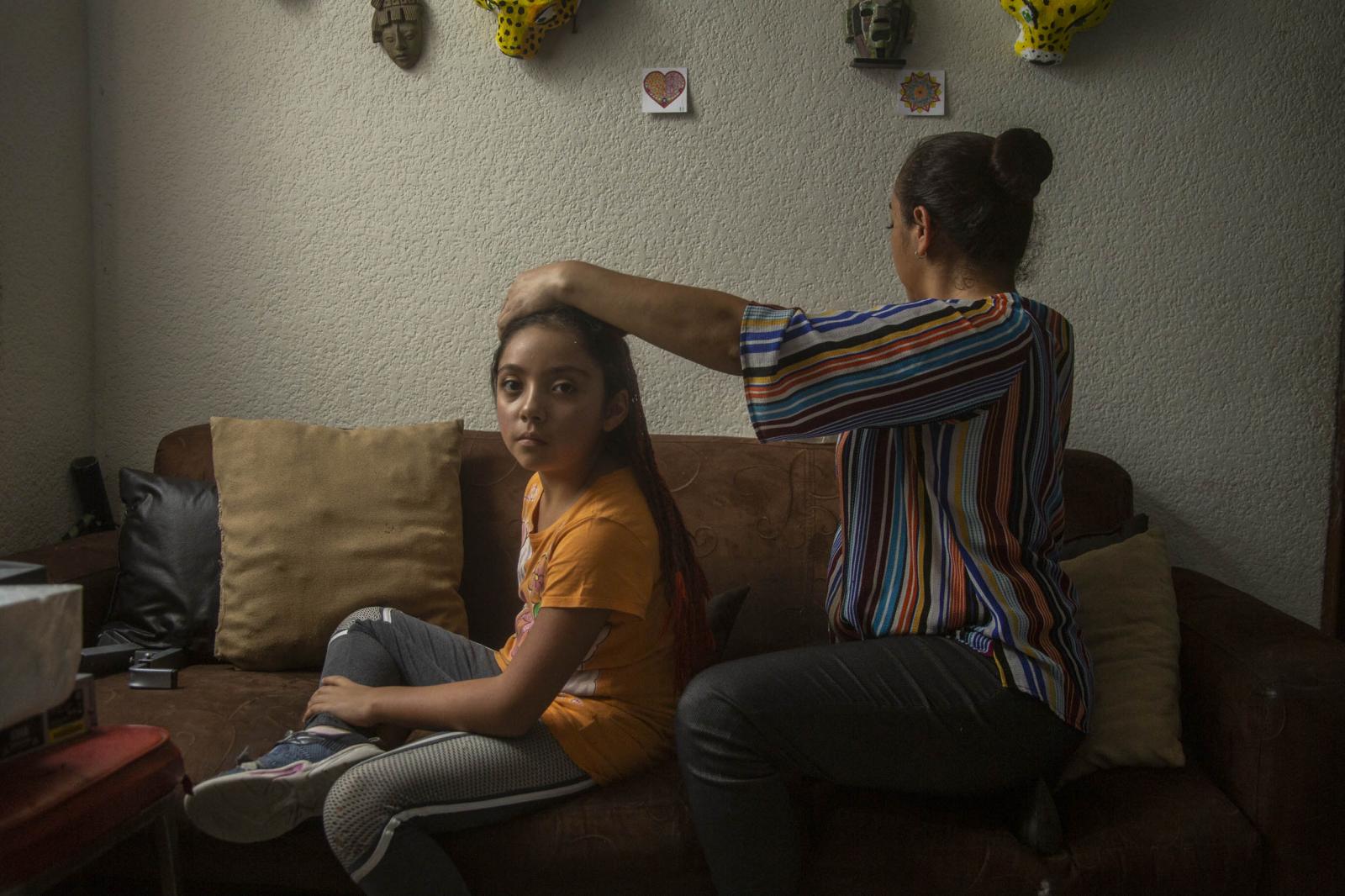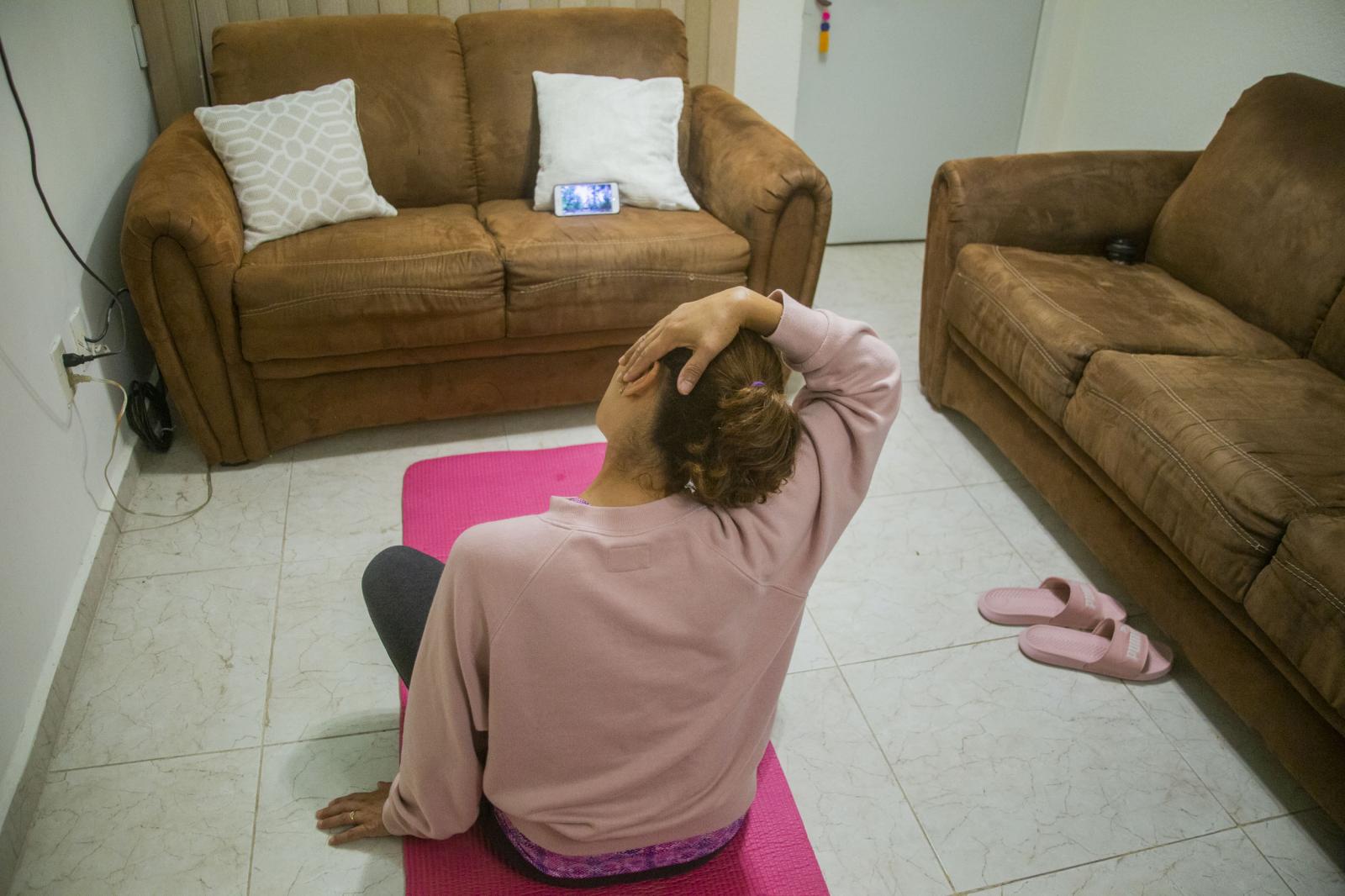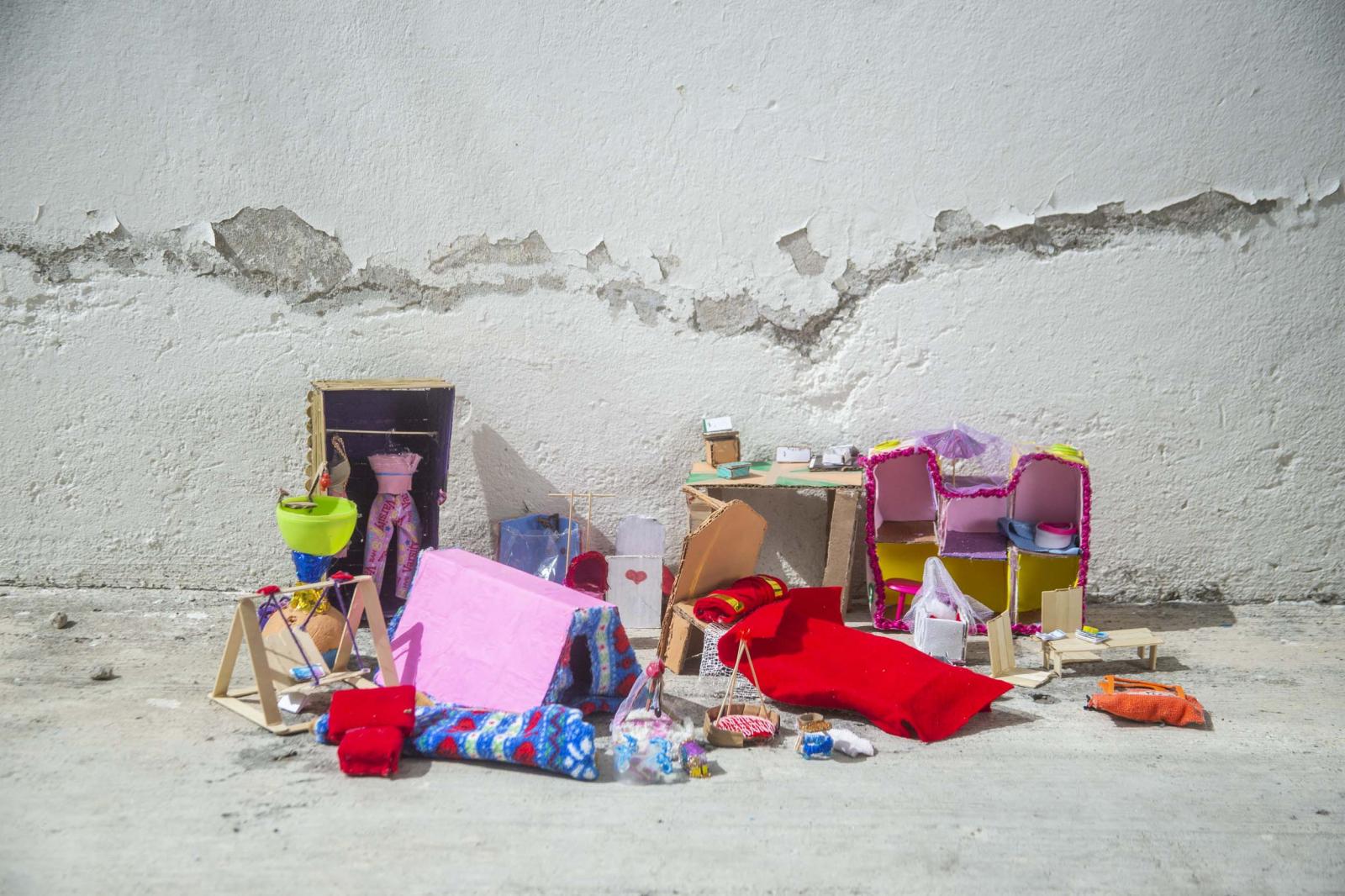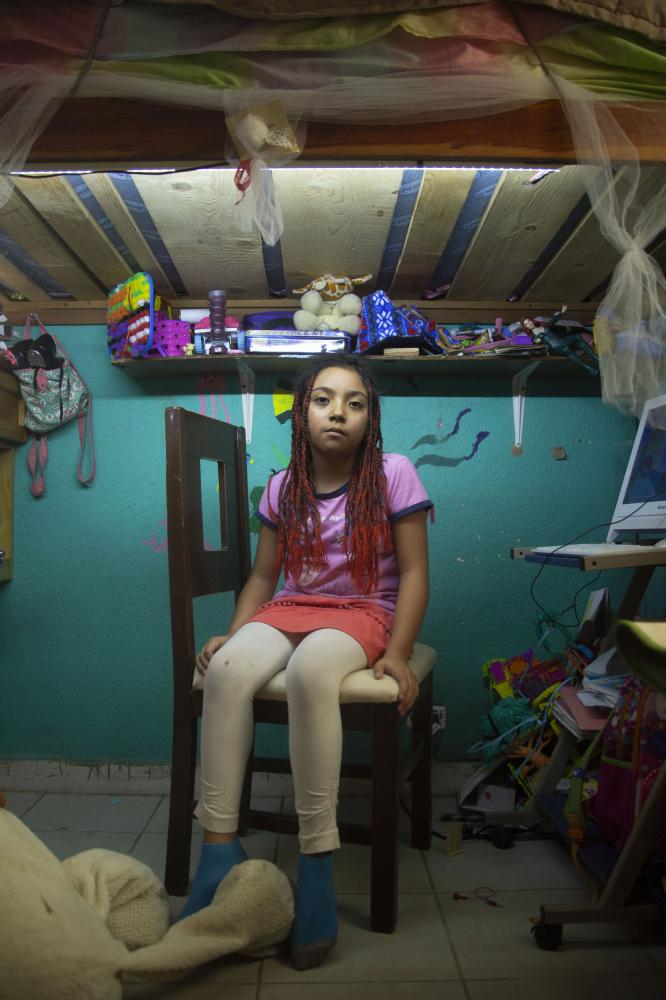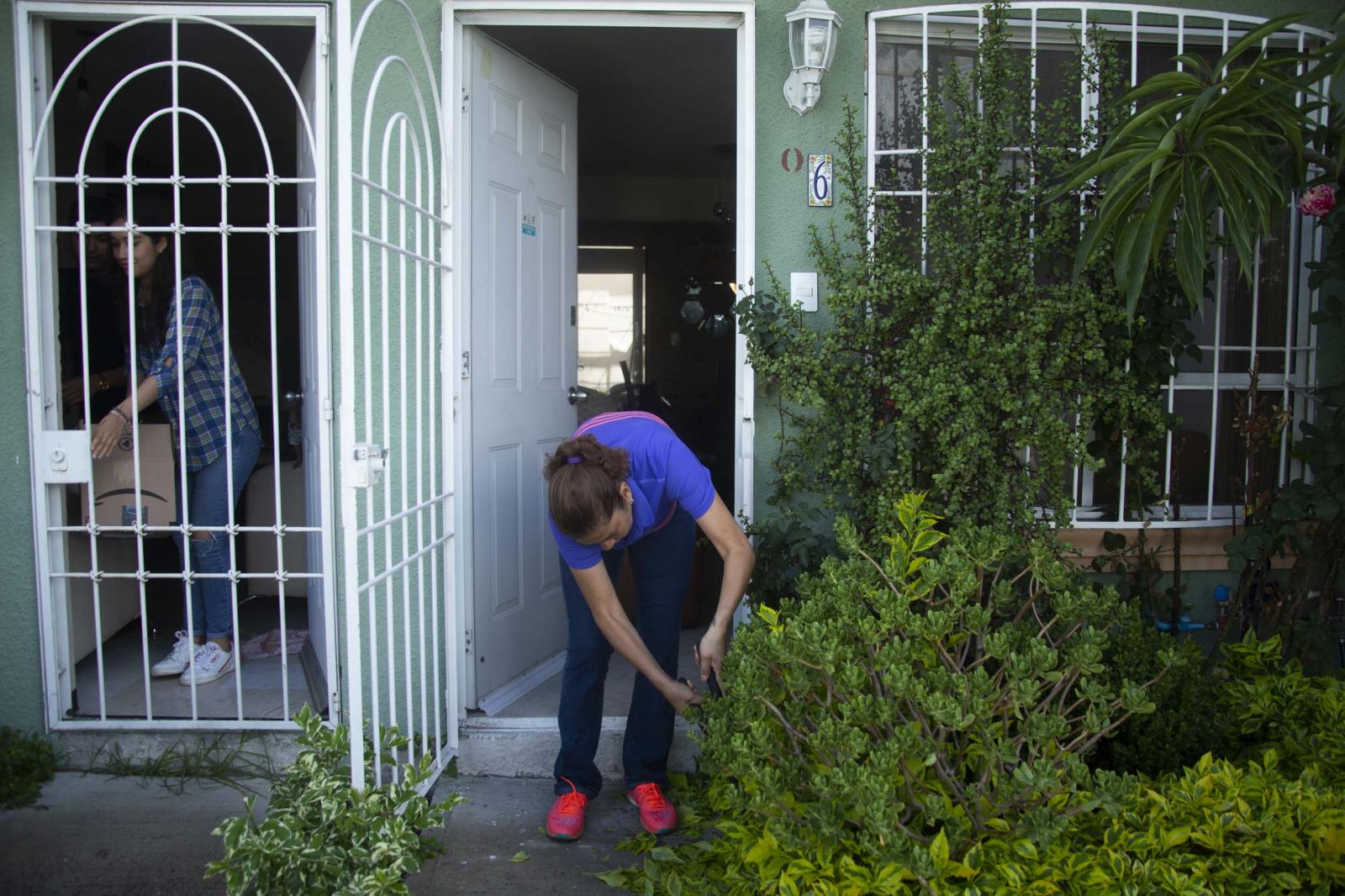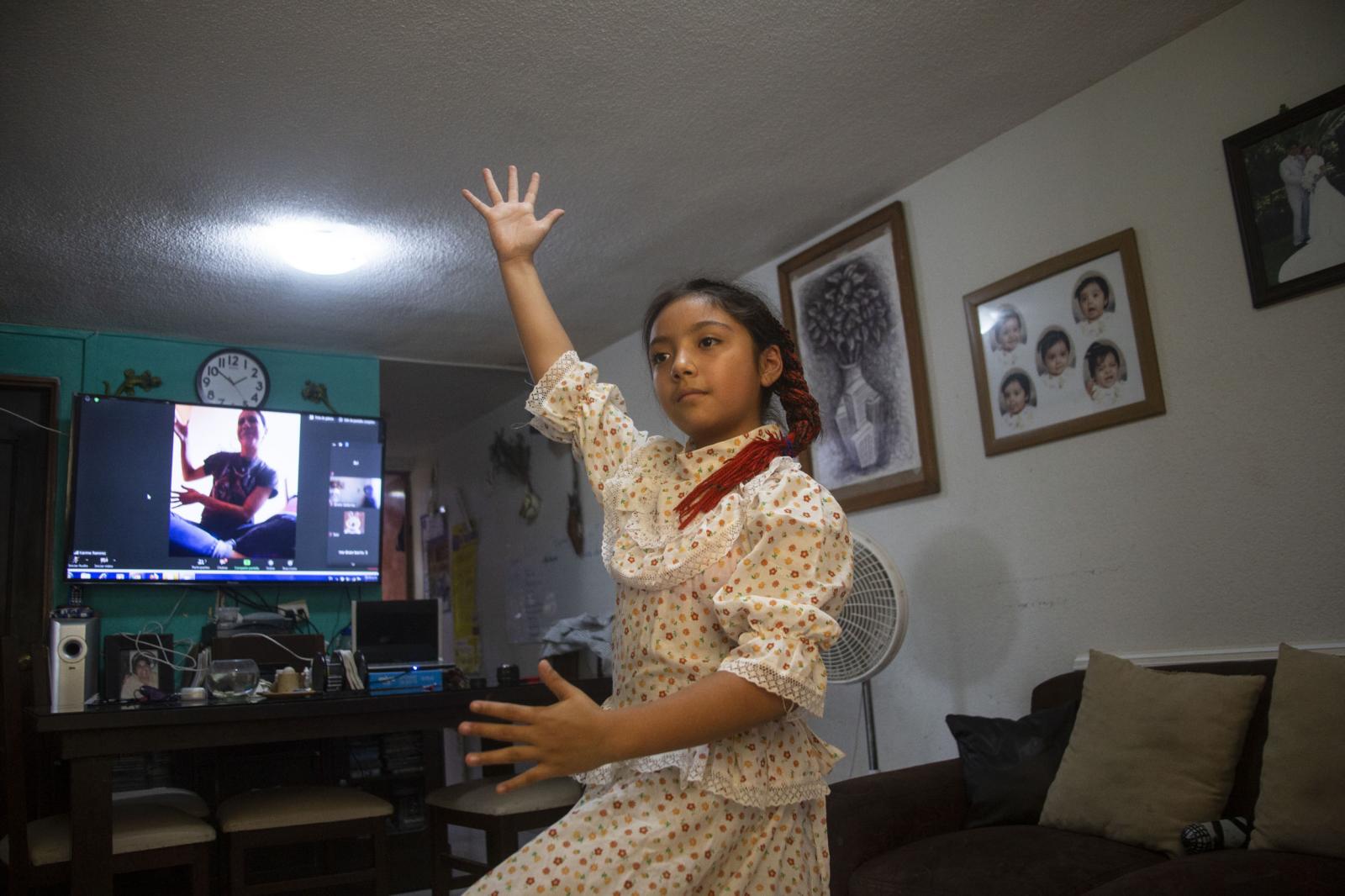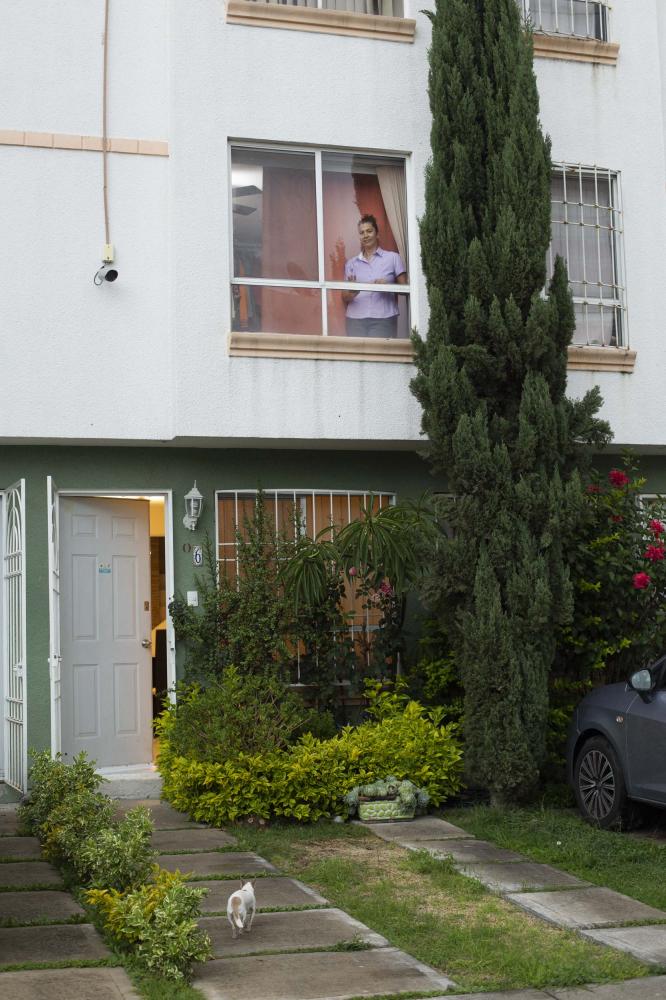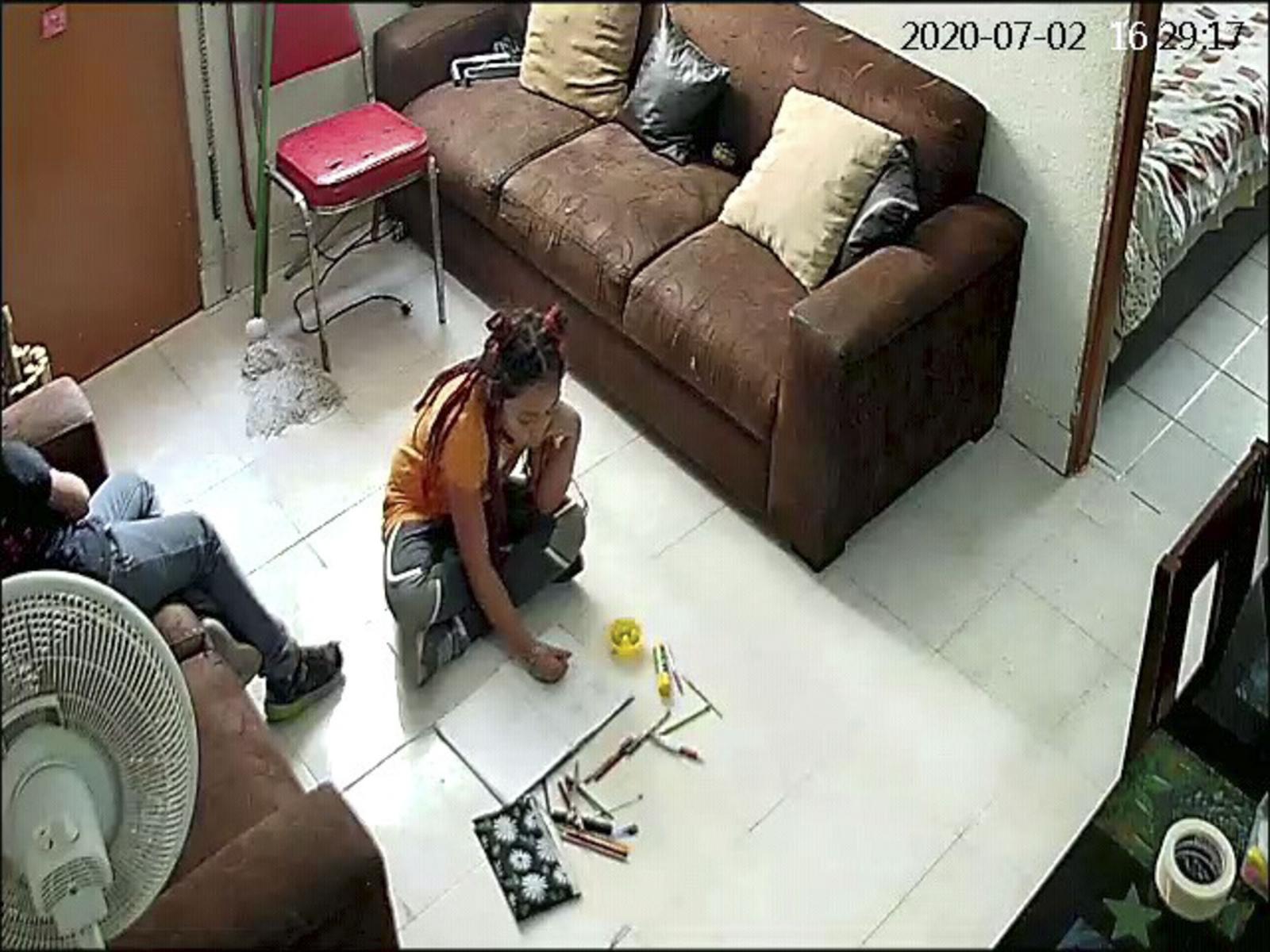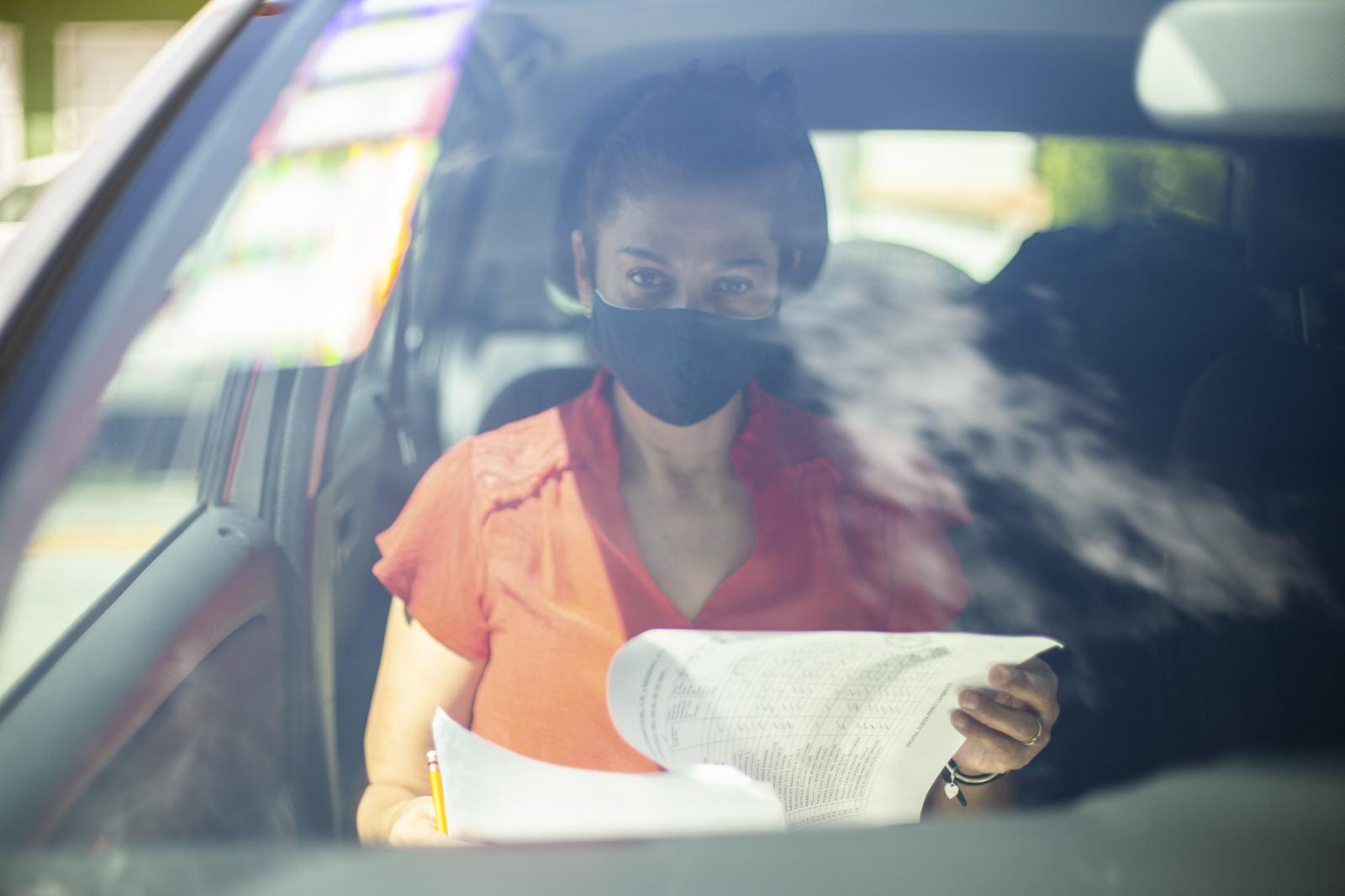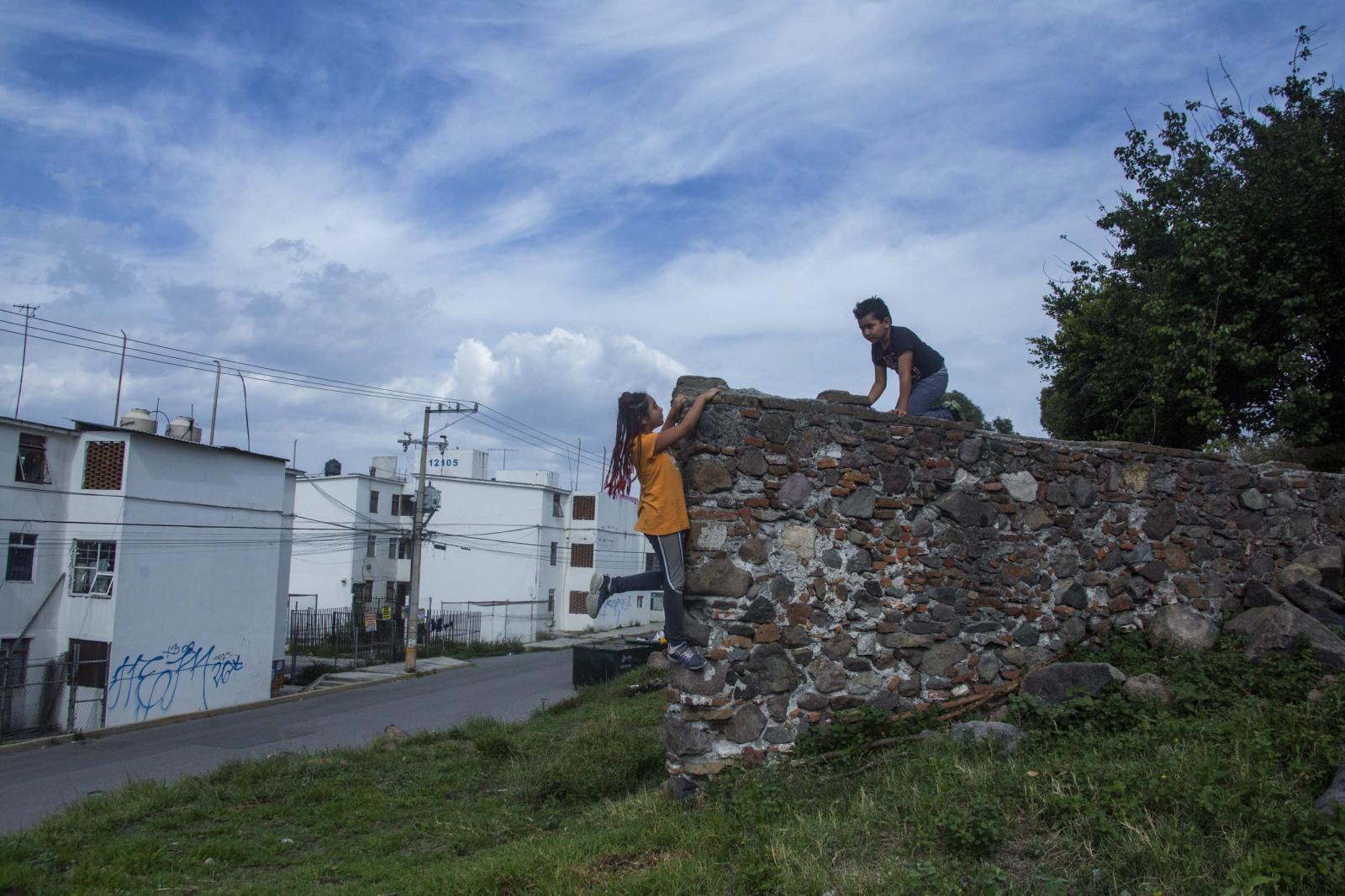Public Project
The Washigton Post - Everything Is Going to Be Ok
Ariadna es una alumna muy responsable y creativa. Sus padres Jessica, secretaria, y Raúl, técnico eléctrico, han hecho malabares para no ser 1.1 millones de mexicanos que se han quedado sin empleo durante la pandemia según el IMSS. Siempre preocupados por el bienestar de los pequeños, se sirvieron de unas cámara que ya tenían instaladas en casa cuando tuvieron que dejarlos solos. Ari y Arturo, 8, seguían clases a distancia por televisión y a través de WhatsApp, pero al final, el programa que marcaban las autoridades escolares hacía más complicado el trabajo para los niños. "Me paraba todos los días a las 7:00 para ver la clase de mi hermano. A las 10:00 veía la mía y después esperar a que diera la 1:00 para ver la última parte”, explica Ari que ayudaba también a su hermano a hacer sus tareas.
Cuando su maestra Aleida se dio cuenta que los niños necesitaban clases personalizadas para poder seguir el años escolar, dejaron la currícula de “Aprende en Casa” a través de la televisión.
Ari dice que, “el coronavirus es una enfermedad muy fea que a todos nos encerró en nuestras casas. La crearon lo chinos por tanta porquería que comen”. Pero ese mismo encierro la llevo a armar una casa miniatura.
Aleida dice que Ari fue una de sus mejores alumnas. A pesar de que la pandemia significó extender su horario y trabajar de 8 de la mañana a 9 de la noche cuando veía el compromiso de niños y padres por mandar sus tareas, se sentía reconfortada e ilusionada. “Dejé de ser sólo la maestra en el aula, pude meterme de manera virtual a sus casas, porque me mandaban fotos y audios en su cotidianidad. Fue una experiencia íntima”, explica.
Sus días en cuarentena se iban en preparar y dar las clases a distancia, hablar con padres y alumnos por WhatsApp, revisar tareas, además de cuidar a sus nietos Iker y Kenia, los hijos de su hijo que falleció hace años. Terminaba exhausta y muy estresada, por lo que empezó clases de yoga en línea.
-
Ariadna is a very responsible and creative student. Her parents Jessica, a secretary, and Raul, an electrical technician, have been juggling not to be 1.1 million Mexicans who have become unemployed during the pandemic according to the IMSS. Always concerned about the welfare of the children, they used a camera they already had installed at home when they had to leave them alone. Ari and Arturo, 8, followed classes remotely on television and through WhatsApp, but in the end, the program marked by school authorities made the work more complicated for the children. "I would stop every day at 7:00 to watch my brother's class. At 10:00 I would watch mine and then wait until 1:00 to watch the last part," explains Ari, who also helped his brother with his homework.
When their teacher Aleida realized that the children needed personalized classes in order to follow the school year, they left the "Learn at Home" curriculum on television.
Ari says that, "the coronavirus is a very ugly disease that has locked us all up in our homes. It was created by the Chinese because of all the crap they eat. But that same confinement led her to build a miniature house.
Aleida says that Ari was one of her best students. Even though the pandemic meant extending her hours and working from 8 a.m. to 9 p.m. when she saw the commitment of children and parents to send in their homework, she felt comforted and excited. "I was no longer just the teacher in the classroom, I was able to virtually go into their homes, because they were sending me pictures and audios of their daily lives. It was an intimate experience," she explains.
Her quarantine days were spent preparing and teaching classes remotely, talking to parents and students on WhatsApp, reviewing homework, and taking care of her grandchildren Iker and Kenya, the children of her son who died years ago. She ended up exhausted and very stressed out, so she started online yoga classes.
Commissioned by Quinto Elemento Lab for Trasluz and published in The Washigton Post and Animal Politico.
7,851

